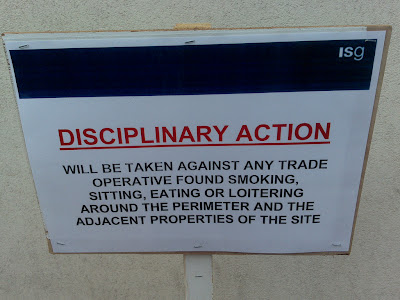One of the understandable realities of private legal practice is clients wanting to know how much a legal service is going to cost. Unlike buying a television, usually clients don't ask "how much?" so that they can shop around for the best price, because no two lawyers or the services they provide are exactly alike. Rather, clients seem to ask about price to see if they can afford the service, or to determine if hiring a lawyer to do the work is worth it to them, instead of trying to do the work themselves, or not seeking a legal solution at all to their problem.
From what I hear, rather than focusing primarily on price, picking a lawyer will often involve people coming up with answers to questions like: (1) who do I trust?; (2) who do I think is most skilled and experienced?; (3) who responds best to my needs, like quickly replying to my questions or at least returning my phone calls or e-mails?; and (4) who is most convenient, either because the lawyer offers services through the Internet so that geographic location isn't a factor, or because the lawyer happens to be physically located close to where I live or work?
Picking a lawyer solely on price may be false economy. If you're retaining a lawyer on an hourly basis, hiring one who charges 30% less per hour, but ultimately bills you 50% more time, will cost you more in the long run.
Likewise, if you're hiring a lawyer based on a block/fixed fee, which is common in many solicitor matters like the preparation of wills or the conduct of real estate transactions, picking based on price (with a preference for low over high) might mean that you have little personal contact with the actual lawyer because s/he simply can't afford to give you a lot of face time due to the very low fees which mean that in order to pay for a high overhead and still turn a slight profit, a very large amount of business needs to run through the practice that inevitably will be mostly handled by non-lawyers under the overall supervision of the lawyer.
I've been fortunate that people never decide not to hire me because of fees (hopefully because they value my experience and responsiveness to their needs), except in one area of law: wills. I often conduct litigation on behalf of clients where the bills can unfortunately mount up because of the multiple court appearances and painstaking drafting of voluminous submissions that can be required in court actions, but those clients seem very satisfied with the value for money that they receive. Perhaps because I stay engaged with them to keep them informed of court progress, and collaborate with them on overall strategy.
However, when it comes to wills, I've found people occasionally choke on cost. It doesn't happen that often, but it does happen. The unfortunate part of the price aversion is that wills are likely the best value and often the least expensive of the legal services that I offer.
I sometimes counsel prospective clients not to hire me for litigation, even though that's how I mostly earn my living, because the amount in dispute is so small that my fees could exceed their potential exposure to liability. I believe I have a public duty not to profit from people's desperation when being dragged into court, and only take on cases when it seems I can provide value to clients that outweighs the legal risks they are exposed to.
But going to a lawyer for a will is going to always pay off in the long run. The risks of not seeing a lawyer for your will include hundreds of thousands and sometimes even millions of dollars not going where you intended it to go after your passing. Relatives could fall to infighting over your assets. The government could wade in to impose heavy taxes and fees. Everything could get tied up in court for years.
I haven't conducted any kind of survey to determine what people expect to pay for a will. But in my personal opinion (not speaking as a lawyer, but as a person who needs a will himself), a lawyer doing your will is probably the best bargain you will get in the legal services world. While the price of a will can vary depending on its complexity, they start at just a few hundred dollars. And that's not just my fees, but many lawyers' fees. Adding in powers of attorney for property and personal care will only slightly raise the price, and there is usually a significant discount for two spouses who have wills done at the same time (in Ontario, spouses always need separate wills).
To be frank (and I try to be as frank and open as possible with my clients and on this blog), I too prior to becoming a lawyer used to think wills were super simple things that one could whip up all by yourself on a Saturday afternoon when watching a football game on television. But then in law school I started to read about all the will disasters when things hadn't been executed properly, or important clauses had been forgotten, or unhappy relatives whom had been intentionally forgotten decided to initiate decades-long court battles worthy of a Dickens novel to overturn a will that they perceived as unjust.
Then, when I started drafting up wills in private practice, and reviewed voluminous legal texts on just how I was supposed to do that, I increasingly appreciated all the skill and care that need to go into a properly drafted will or power of attorney. The lawyer needs to learn about and understand your life. That can't happen in a ten minute meeting that is mostly comprised of the phrase: "sign here." Often more than one lawyer-client meeting will be required, the lawyer may need to carefully review a several of your financial documents, and some legal research could even be justified to ensure you get the will you deserve, that is ideally custom-crafted to your own personal circumstances. Not just to the circumstances of some "fill in the blanks" "model client" who doesn't really exist.
We all know there is an increasing litigiousness in our society. We also know that we are all passing away richer than ever. Now, if you own a home without a mortgage (or at least plan to be mortgage free in the future), you will be passing away rich by historic standards. Now, more than ever, it's vital that your assets go where you want them to go. Plus, with fewer and fewer people getting legally married, common law spouses will not necessarily have the same rights to assets/insurance/pensions of a deceased as would a legally married spouse.
So see a lawyer about your will. And don't be put off by the cost. It'll be the best bargain you'll ever receive in legal services! Trust me. I'm a lawyer.








.jpg)









